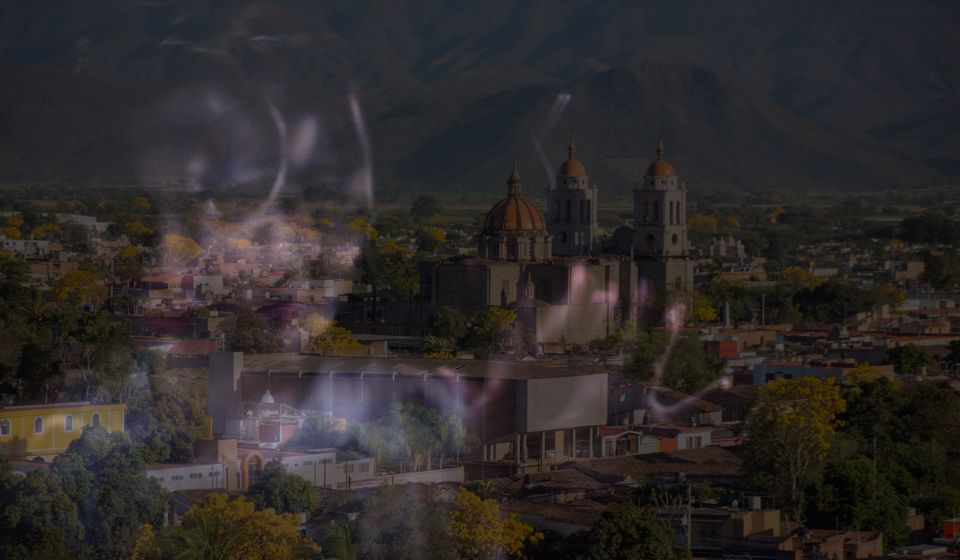Tamaulipas Illicit Network Index
In Northeast Mexico, two prominent criminal organizations—the Cartel del Golfo (CDG) and Cartel del Noreste (CDN)—are notorious for their roles in drug trafficking and gang violence. The latter is a direct offshoot of the infamous Los Zetas, which has fragmented due to internal rivalries.
Operating primarily in Tamaulipas, these cartels have established powerful networks that extend beyond the drug trade, infiltrating politics and business in the region. However, one aspect of their cross-border activity often goes overlooked: the Cartel del Golfo and Cartel del Noreste control human and sex trafficking routes to the United States—often with the complicity of Mexican authorities.

Influence and involvement
Press reports indicate that the Cartel del Golfo, with influence in areas like Reynosa and Matamoros, is deeply involved in human trafficking across Northeast Mexico. In one case, an individual named Mauricio Vega, reportedly affiliated with the CDG, was apprehended in Coahuila on charges related to human trafficking.
Furthermore, research networks have documented both cartels' involvement in human and sex trafficking operations and exploitation within Tamaulipas. Although high-profile leaders have not been directly charged with these crimes, they have overseen these operations, typically carried out by lower-level members of their organizations.
The political context and environment
These groups have exerted influence over local political life. Former governors of Tamaulipas, such as Tomás Yarrington Rubalcaba and Eugenio Hernández Flores, have been accused of maintaining ties with the CDG and engaging in money laundering schemes linked to cartel profits. Yarrington and Hernández allegedly laundered money through investments in construction and real estate, leveraging these industries to conceal illicit funds.
Eugenio Hernández Flores, in particular,
remains active in local politics and has received support from the Partido Verde Ecologista. Investigations reveal his longstanding connections with influential businessmen who reportedly helped him launder cartel money through their companies. Business figures like Fernando Alejandro Cano Martínez, involved in construction, and Seyed Mohammed Farough Fatemi Corcuera, active in real estate, are suspected of assisting Hernández by channeling illicit funds through legitimate business fronts. These businesses likely include Materiales y Construcciones Villa de Aguayo, S.A. de C.V., Grupo Inmobiliario Cormon, and Inmobiliaria Santa Dolores. The same businessmen have been associated with Yarrington, who reportedly received assistance from other business figures, such as Gabriel Maldonado Pumarejo and Eduardo Rodríguez Berlanga, the latter of whom was arrested in Monterrey on corruption charges.
In connection with the same political corruption case, a third governor, Manuel Cavazos Lerma, was investigated, along with other local officials such as former Attorney General of Tamaulipas, Jose Guadalupe Herrera Bustamante; politician Ricardo Gamundi Rosas; former governor of Coahuila, Humberto Moreira; and former Secretary of Finance for Tamaulipas, Alfredo González Fernández. Many of these individuals are affiliated with the Institutional Revolutionary Party (PRI), which dominated the region’s political scene for at least two decades.
Human trafficking enablers
Nevertheless, Evidencity has identified cartel links extending to the National Action Party (PAN)—another prominent force in Mexican politics. Francisco Javier García Cabeza de Vaca, who became the first non-PRI governor of Tamaulipas in 86 years in 2016 and was previously the municipal president of Reynosa, has also been accused of connections with the Cartel del Golfo.
This intricate network of criminal actors, politicians, and business leaders has created a concealed infrastructure that enables cartel operations and influence in Tamaulipas. Through these connections, political and business actors have become enablers in the human trafficking activities and extreme violence perpetrated by these two cartels. Discover more in our unique dataset on Tamaulipas.



